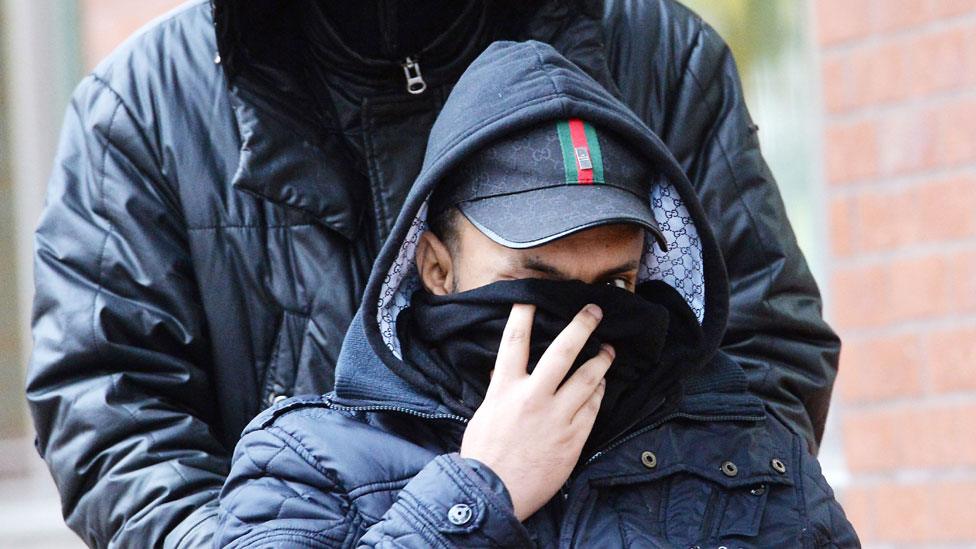Rotherham abuse: Hussain brothers 'were infamous'
- Published
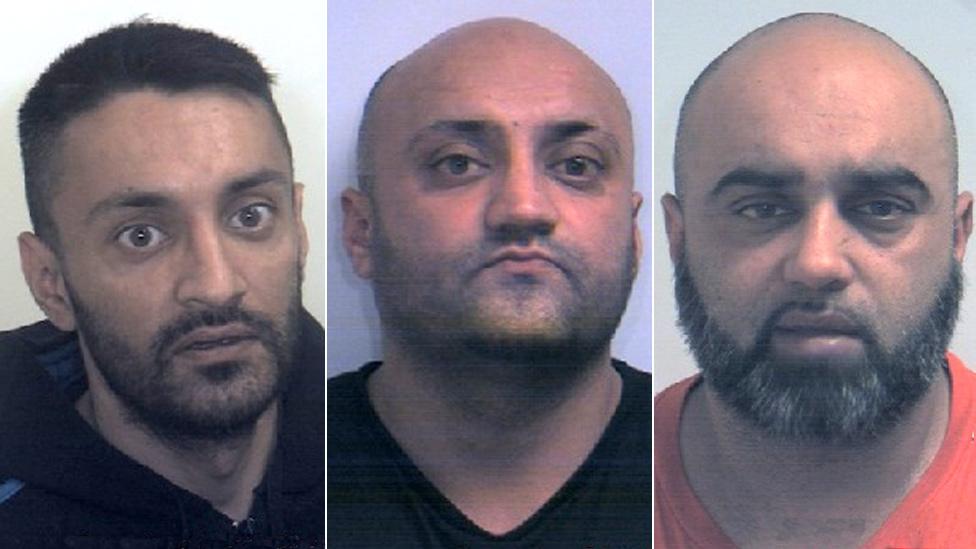
(l-r) Arshid, Basharat and Bannaras Hussain have been convicted of grooming and sexually abusing young girls in Rotherham
For the three Hussain brothers - Arshid, Basharat and Bannaras - Rotherham was their personal playground and the young girls they abused were merely their toys. The men groomed and raped children for nearly 20 years. Now they have been convicted, charities say the brothers should have been prosecuted 15 years ago.
The trial centred on a group of young girls who each believed they were girlfriends of the Hussain brothers. In reality they were being used, abused and traded as sexual commodities.
Arshid and Basharat have now been found guilty of a total of 38 offences, including rape, indecent assault, abduction, actual bodily harm and forcing their victims to have sex with others.
Bannaras pleaded guilty before the trial to 10 charges, including two counts of rape and six of indecent assault.
The brothers' uncle, Qurban Ali, was found guilty of conspiracy to rape but cleared of other charges of rape, indecent assault and procuring a girl for unlawful sex.
Known around the South Yorkshire town by their nicknames of Mad Ash, Bash and Bono - the three brothers were drug dealers who ruled the roost using violence and fear, their trial heard. They were also superficially charming, and knew how to pick their vulnerable victims.
The grooming took place across Rotherham; in houses, lock-up garages, churchyards and public spaces, including Clifton Park. The victims were forced to perform sex acts, often on several men at a time, and also forced to store guns and drugs for the gang.
Some were as young as 11 but, according to an unpublished Home Office report in 2002, South Yorkshire Police and Rotherham Council regarded them not as grooming victims but youngsters who had made a lifestyle choice.

Jessica's story

Jessica was abused by Arshid Hussain when she was 14. She said his personality quickly changed from charming to controlling
Jessica* was 14 when she was first abused by the then 24-year-old Arshid Hussain.
"At first he was really nice, he paid me compliments and took me to nice places. But then he started being very controlling, he isolated me and I wasn't allowed to do anything without his permission.
"It became that the only person in my world was him.
"I remember my family was really trying to get me out of it - but I just thought they were against me. [Hussain] said it was because they were jealous and they didn't want us to be together.
"I believed him.
"There were times when I actually thought he was going to kill me - that became on a daily basis. There were lots of people scared of the Hussains, not just children like myself.
"The police didn't help - they just saw me as a child with an attitude problem. I was being mentally, physically and sexually abused. And they just left me with him."
*Jessica's name has been changed to protect her identity

An independent review carried out by Professor Alexis Jay in 2014, external found "at an operational level, the police gave no priority to child sexual abuse, regarding many child victims with contempt and failing to act on their abuse as a crime".
She said if the Home Office report had been "treated with the seriousness it merited at the time by both the police and the council, the children involved then and later would have been better protected and abusers brought to justice".
While the girls were initially charmed by their "boyfriends", affectionate words and generous gifts were soon replaced by beatings, humiliation and enforced prostitution.
According to one victim, who believed she was "in a relationship" with Basharat Hussain when she was 15, the brothers had influence over some officers at South Yorkshire Police.
She told Sheffield Crown Court: "Bash said he used to pay this person in CID, and this person would say what's happening with me and he'd also tell him when he was going to get busted."
These claims are now being investigated. But in at least one case in the early 2000s, a victim's abuser seemed to be aware she was at a police station, waiting to make a complaint against him.
The Home Office researcher behind the 2002 paper, Adele Gladman, described this particular case as "the final straw".
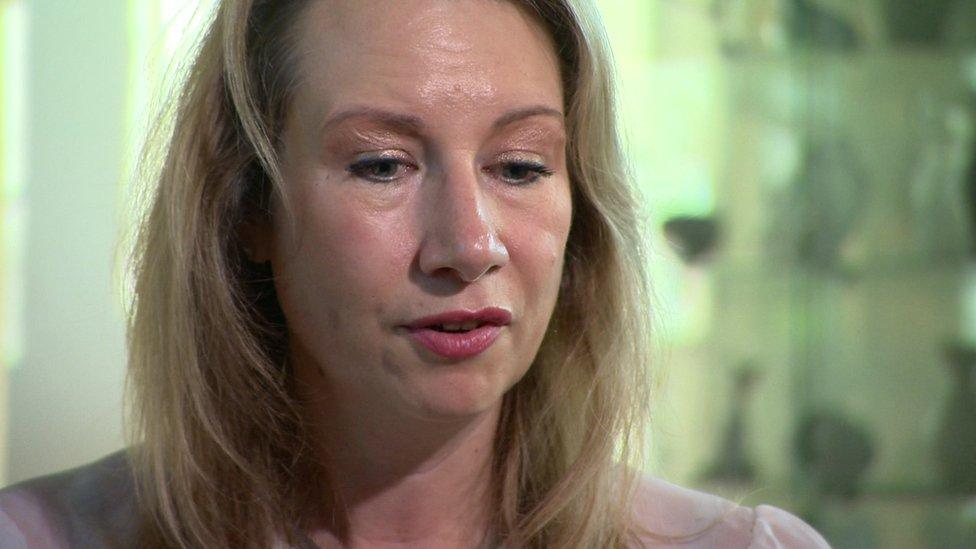
Home Office researcher Adele Gladman said the Hussain brothers' convictions were "slightly hollow, as they should have been prosecuted years ago"
The young girl had been repeatedly raped and had tried to escape her perpetrators but was terrified of reprisals. They had allegedly vandalised the parental home and attacked her brother "to send a message".
At that point, the child agreed to make a complaint to the police. Ms Gladman took her to the police station office.
While there, the girl received a text from the main perpetrator. He had with him her 11-year old sister. He said repeatedly to her "your choice…". The girl did not proceed with the complaint, telling Ms Gladman: "You can't protect me".
These details were found to be accurate by the 2014 Independent Review.
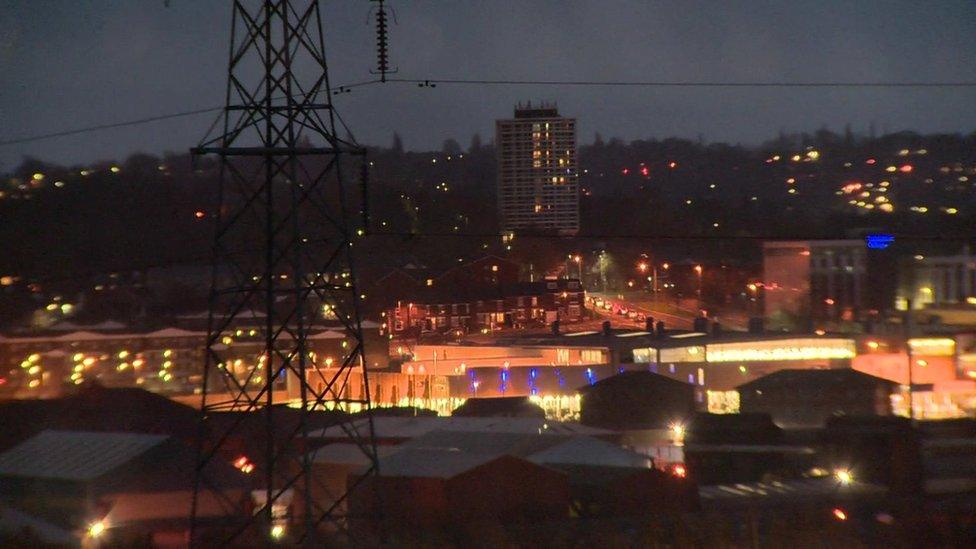
The Hussains groomed and exploited girls as young as 11 in Rotherham
Ms Gladman said that by October 2001, 54 young women had been linked to the brothers. Of those, 18 had identified Arshid Hussain to project workers as their "boyfriend".
He repeatedly raped one girl at the home of Karen MacGregor after the girl had been befriended by MacGregor and Shelly Davies.
One witness compared MacGregor's home to the witch's house in Hansel and Gretel.
The grooming activities of the Hussains were widely rumoured, according to Jayne Senior, who set up outreach service Risky Business to work with young people being abused through prostitution.
By the late 1990s, Risky Business had identified vulnerable girls and young women on the streets who reported they were being abused.
Ms Senior said there was enough information to launch a criminal investigation "in the early 2000s".
But it later emerged some of the information had gone missing.
The former chief executive of Rotherham Council, Martin Kimber, told MPs the files had "disappeared" from the authority's archives, while director of children's services Joyce Thacker said the material did not appear to have been referred to in any existing council minutes. Asked whether there had been a "deliberate attempt to suppress information", she said she could not answer.
Ms Gladman said files containing data on "who the perpetrators were, what cars they were using, their grooming methods, their offending methods, and what I was also collecting, information on professional responses" were stolen from her office.
She said there were no signs of a forced entry to the key-coded and locked security doors.
Another person who believed himself to have been ignored by the authorities is Jim Stevens who, between 1985 and 2010, ran a hostel for young vulnerable people in the town.
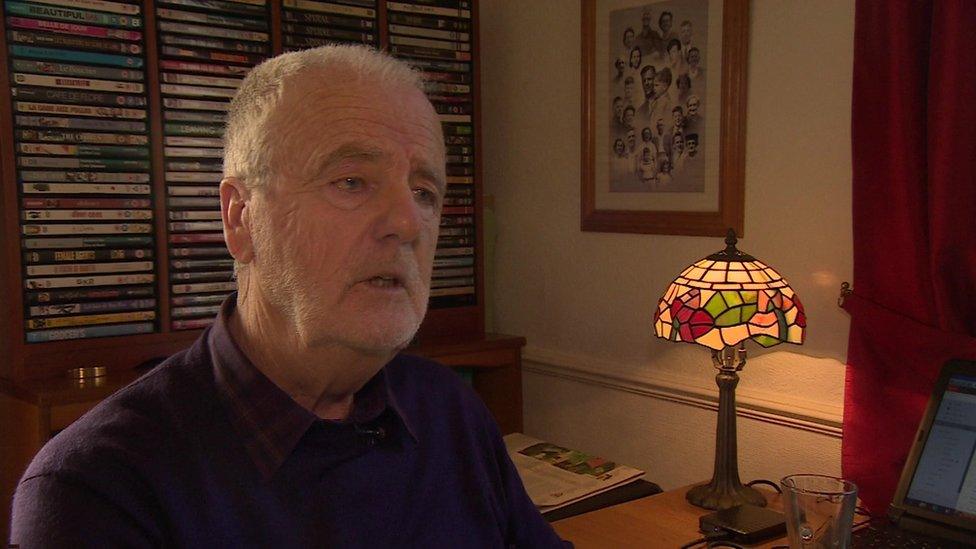
Jim Stevens, who ran a hostel for vulnerable young people between 1985 and 2010, said the Hussain brothers "got whatever they wanted"
He said the Hussains had come up in conversation as abusers since 2001. He said his staff would speak to girls staying at the hostel who described the brothers as violent and controlling.
"The general impression we got was that if the Hussains wanted anything or wanted to meet a girl, then they got what they wanted.
"If they sent someone round or phoned a mobile they gave the girls, the girls didn't have the confidence to say 'no'. And given the reputation of the Hussains for violence and the way they treated people - it's understandable that's what they would do.
"The Hussains were violent, ruthless and had no respect for anyone, individuals or organisations. They were extremely frightening and threatening characters."
In 2003, Arshid Hussain and Bannaras Hussain were found guilty of aggravated burglary, grievous bodily harm and witness intimidation. Arshid Hussain was left paralysed from the waist down after being shot in a gangland incident in 2005.
Mr Stevens said when he and his staff had multi-agency meetings, any mention of sexual exploitation was recorded and passed to the police.
"But at the time, the police only had one dedicated officer for sexual exploitation and she made it clear to us that the information should be passed to Risky Business rather than directly passed on by us.
"So that's what we did."
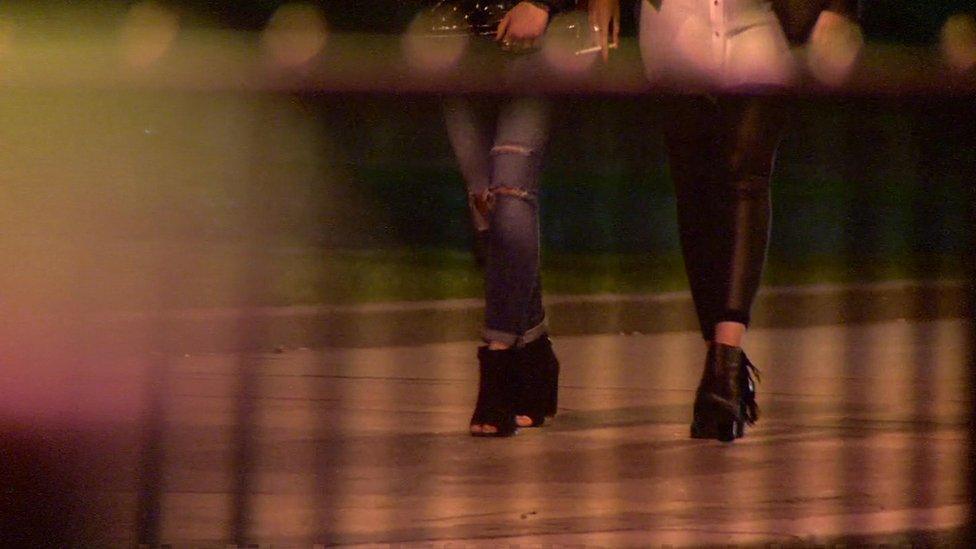
The Hussain brothers targeted vulnerable young girls, groomed them and forced them into having sex
Fleur Strong, from the charity Parents Against Child Sexual Exploitation (Pace), which was working in Rotherham at the same time as Ms Gladman, said the young girls being exploited were seen as individuals who chose to be prostitutes.
"We were saying: 'This is incorrect. These are children who are being abused'."
The issue of child sex abuse in Rotherham first came to light in November 2010 when five Asian men were jailed for sexual offences against underage girls. The town's former Labour MP, Denis MacShane, claimed police had kept the abuse secret from politicians.
"The Rotherham police exposed, arrested and broke up an evil gang of internal traffickers who were sent to prison," he said.
"But it is clear the internal trafficking of barely pubescent girls is much more widespread."
It emerged that "at least" 1,400 children were sexually exploited in Rotherham and the local authority was found to be "not fit for purpose".
Ms Gladman said she heard about the Hussain brothers as soon as she started her research - but the response from the council and police "was one of disbelief, that there was maybe something flawed with the information I had".
"I think the victims were even more vulnerable to being abused because the reaction from the authorities reinforced the message from their abusers that nobody was interested in them, nobody was going to believe them, nobody was going to help them and that the abusers had all the power and control."
Ms Gladman said she is still "confounded" by the failure of authorities to protect the girls.
Her report followed a Home Office research pilot set up to find out the most effective approaches to street prostitution and child sexual exploitation.
"The council had signed up to the Home Office pilot. I don't know quite what they thought it was going to find, but the fact that they didn't support it, they didn't take on board those findings is… unforgiveable."
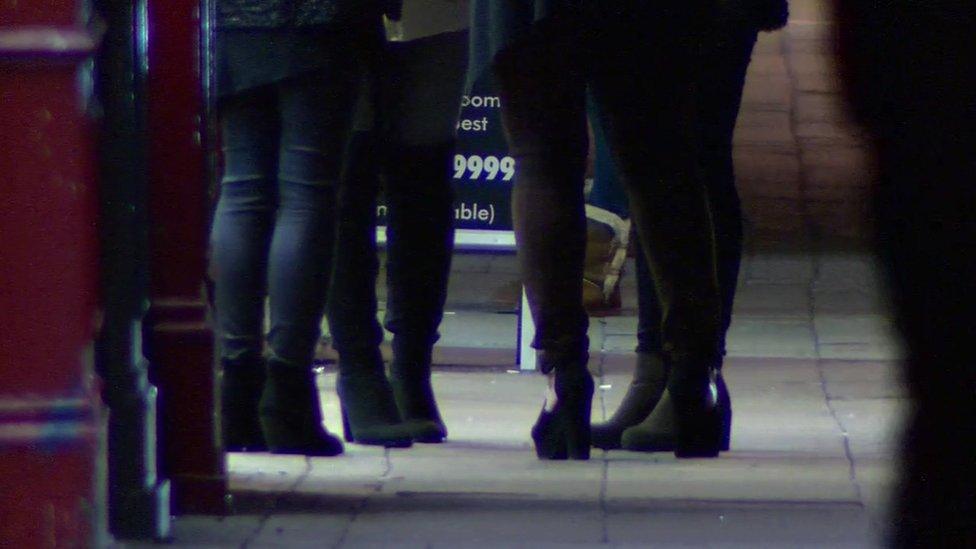
As far back as 2001, at least 54 young women had been linked to the Hussain brothers. Of those, 18 described Arshid Hussain as their 'boyfriend'
Ms Strong said: "We knew the victims and from that we built up information and intelligence about [people] who were then called pimps but we now call perpetrators.
"The Hussain brothers were infamous. They were plying girls with alcohol and drugs, they were raping them and sexually abusing them and exploiting them. We knew exactly what was happening."
The charity went to the police and the local authority and also wrote to the Home Office. But Ms Strong said she felt the police did not want to know.
"It was an experience of basically being blocked, being shut down and not listened to. When you're a tiny charity, you can only do so much shouting.
"When every institution you are trying to tell will not listen to you, it's very difficult to know where to go next.
"They were more interested in protecting the reputation of their own organisations than face up to the fact they had children who were being exploited and abused in the town. It was known about and it was ignored."
Chris Read, leader of Rotherham Council, acknowledged its past failings as "a catalogue of errors".
"A culture that was wrong within the council...meant that these women were not heard", he said.
He added: "The way we respond to child sexual exploitation is very different now to how it was in the past."
Ch Supt Jason Harwin, district commander for Rotherham, said: "We recognise we've made mistakes and I'm sorry for those mistakes.
"We [now] understand better the needs of victims and survivors and the support they require."
- Published17 February 2016
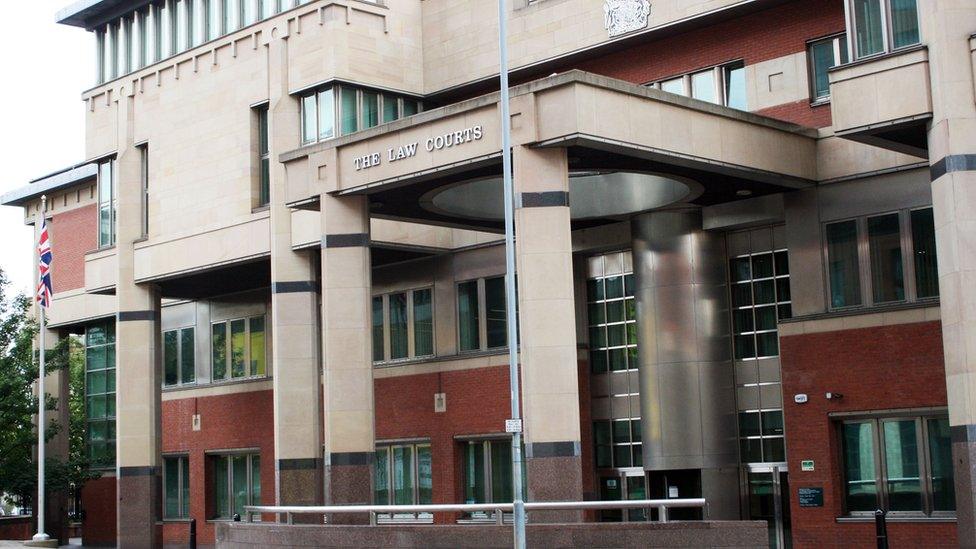
- Published3 February 2016

- Published27 January 2016

- Published12 January 2016

- Published18 December 2015

- Published16 December 2015
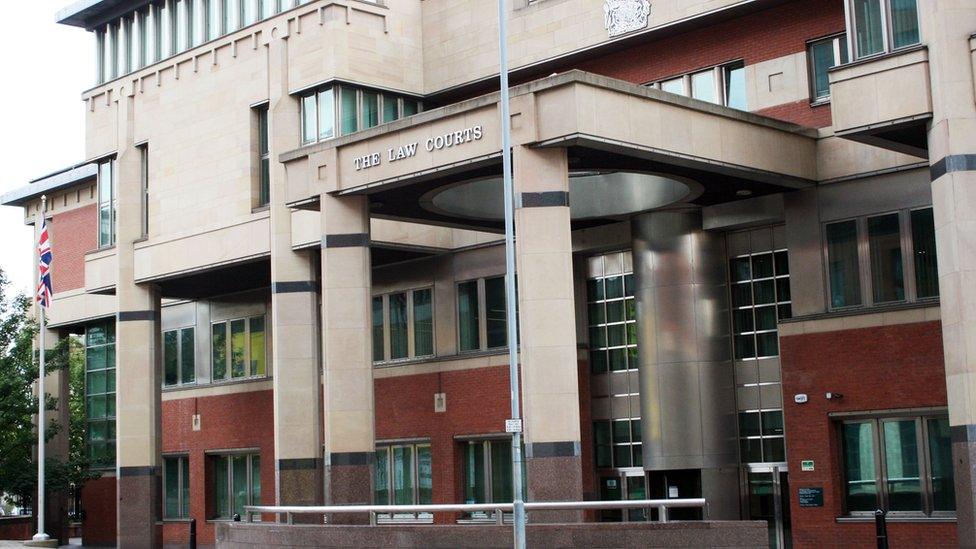
- Published15 December 2015

- Published14 December 2015
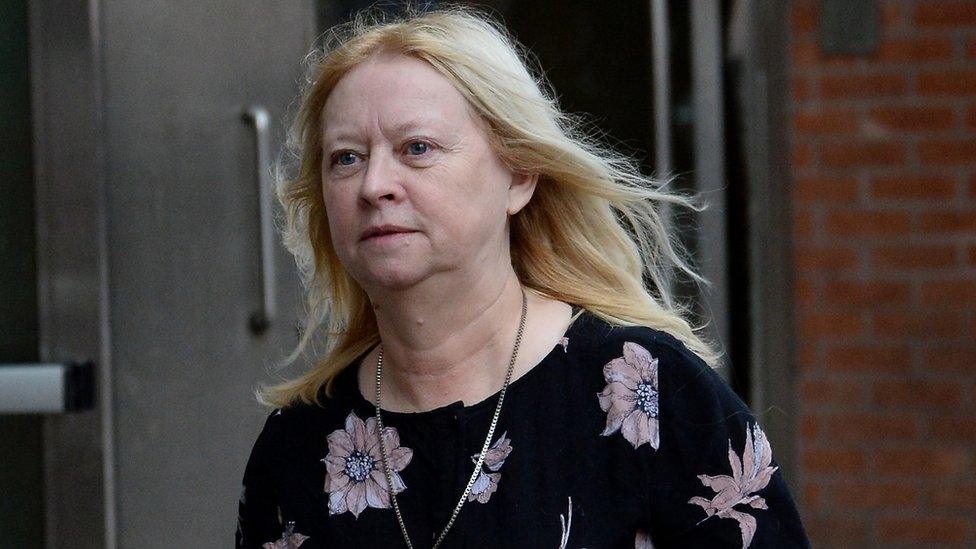
- Published11 December 2015
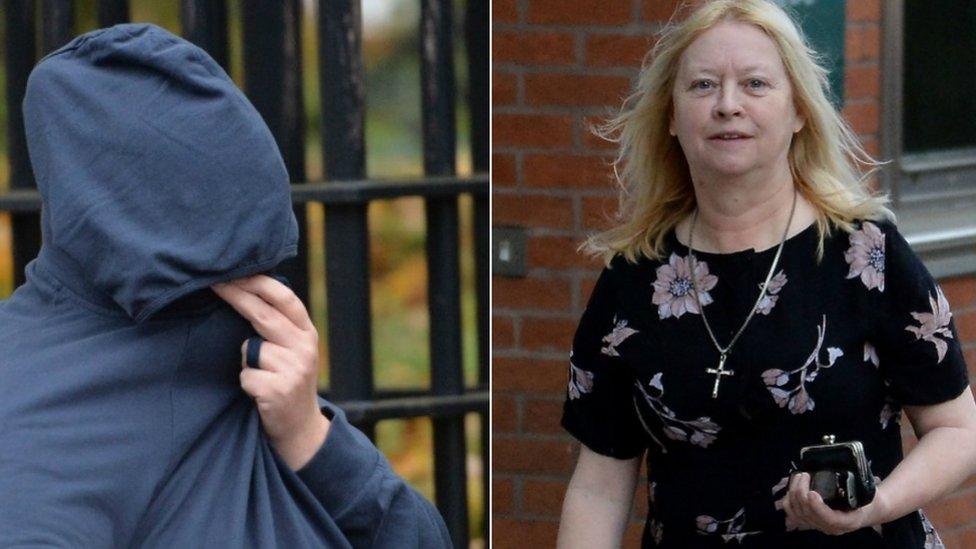
- Published10 December 2015
